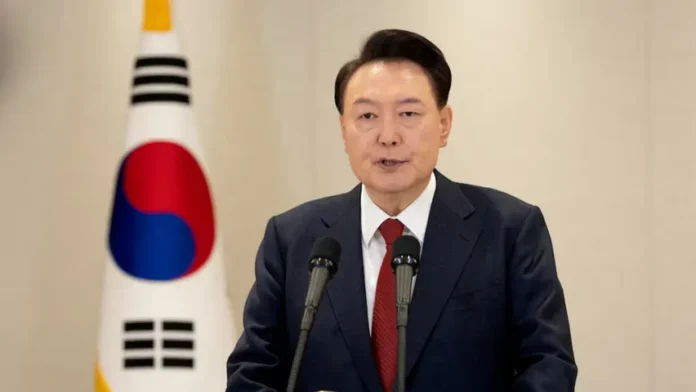South Korean President Yoon Suk Yeol has been arrested following a tense political standoff, marking a new development in the weeks-long crisis stemming from his controversial martial law decree last month.
The Corruption Investigation Office for High-Ranking Officials (CIO) reported that Yoon was detained early Wednesday after investigators attempted a second round of questioning related to the decree. Yoon, who has been holed up in his official residence, has faced multiple probes and an impeachment trial since the declaration.
Yoon’s arrest follows a failed attempt earlier this month when the president’s security detail and military personnel blocked police and investigators from approaching his residence. This standoff marked a tense moment in a battle that has embroiled South Korean politics for weeks.
Yoon is under investigation for multiple charges, including leading an insurrection—a crime that carries severe penalties, including life imprisonment or the death penalty. The CIO had previously issued a warrant to detain Yoon after he ignored three summonses to cooperate with the probe.
Opposition protests erupted outside the presidential compound, with demonstrators chanting slogans like “resign” and “take responsibility.” Pro-Yoon supporters also gathered, chanting in defense of the president, further deepening the political divide. Protesters held signs accusing the president of insurrection, including one that read “Insurrection Department – Yoon Suk Yeol.”
A court-approved warrant for Yoon’s detention allows investigators to hold him for up to 48 hours, after which they must apply for a further arrest warrant if they wish to keep him in custody. This move comes after Yoon’s unexpected martial law declaration on December 3, which he claimed was necessary to protect South Korea from “anti-state elements.”
The National Assembly quickly voted to reverse the decree, and Yoon faced significant backlash from lawmakers and the public. His controversial actions revived memories of the country’s authoritarian past, leading to widespread protests.
Yoon’s lawyers have condemned the detention warrant, calling it “illegal and invalid” and promising to challenge its execution. Despite the ongoing investigations, Yoon has remained defiant, continuing to face an impeachment trial in the Constitutional Court, which will decide whether he will be formally removed from office.
The first day of his impeachment trial was marred by Yoon’s absence, with the proceedings lasting only four minutes. The trial, expected to last up to six months, is set to resume Thursday and will continue whether or not Yoon is present.
As the political crisis deepens, acting President Choi Sang-mok, the country’s finance minister, is stepping in after the National Assembly also impeached Prime Minister Han Duck-soo. The Constitutional Court has promised to prioritize the case against Yoon and other impeachment cases involving his administration’s senior officials.


